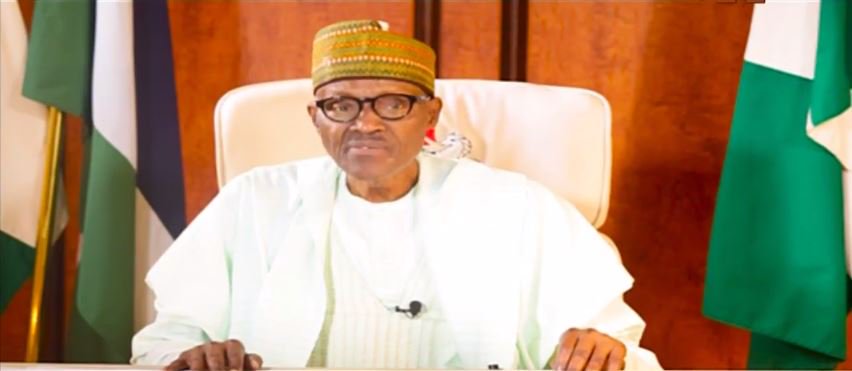Presumed leaders of southern Nigeria this Monday sued President Muhammadu Buhari over allegations of marginalisation. The suit marked FHC/ABJ/CS/595/2020 before the Federal High Court in Abuja claims that most appointments since the inception of his administration in 2015 were in breach of the 1999 Constitution and the Federal Character Principle.
The plaintiffs are Edwin K. Clark, Reuben Fasoranti, John Nnia Nwodo, Pogu Bittus, Chief Ayo Adebanjo, Alaowei Bozimo, Sarah Doketri, Chukwuemeka Ezeife, Idongsit Nkanga, Kofoworola Bucknor-Akerele, Julie Umukoro, Stephen Bangoji, Tijani Babatunde, Rose Obuoforibo Mr Adakole Ijogi and Charles Nwakeaku.
Listed as 2nd to 4th defendants in the matter are the Attorney-General of the Federation, Clerk of the National Assembly, and the Federal Character Commission.
They urged the court to award N50billion against the defendants to represent punitive, aggravated and exemplary damages to the constituents of the plaintiffs for the illegal, wrongful discriminatory and unconstitutional acts committed by the 1st defendant against the people of the plaintiffs’ states and geopolitical zones.
Justice Okon Abang has fixed July 10 to hear the case.
The suit was filed through a consortium of lawyers comprising 10 Senior Advocates of Nigeria led by Chief Solomon Asemota and Chief Mike Ozekhome.
They want the court to determine, among other things:
*whether it was not “reckless and adverse to the interest of Nigeria” for President Buhari to obtain a loan facility from the Islamic Development Bank, African Development Bank, the World Bank, China, Japan, and Germany amounting to $22.7 billion (USD) for infrastructural development, only to allocate the bulk of the fund to the northern region. They seek a declaration that the loan facility purportedly for infrastructural development, wherein less than 1% of the amount is to be allocated to the south-east zone of Nigeria for specific infrastructural development, violates section 16 (1) (a) (b) and S16 (2) (a) (b) (c) of the 1999 Constitution (as amended).
* “A declaration that the 1st Defendant’s procurement of any loan which would increase Nigeria’s outstanding debt by up to 30% of its GDP or which would increase its interest payment above 50% of government revenue is unconstitutional.”
*“Whether the power to appoint designated public officers including permanent secretaries, principal representatives of Nigeria abroad, which is vested in the 1st Defendant, has been lawfully exercised by him since the inception of his administration from 2015 till date and whether his actions are in breach of Sections 171(5), 814(3) (4) of the 1999 Constitution (as amended).
*“Whether the power to appoint Nigeria’s Armed Services Chiefs, other Commanders or top officials of the respective Armed Forces Higher and High Commands’ General Staff , namely the Chief of Defence Staff (CDS), Chief of Army Staff (COAS), Chief of Naval Staff (CNS) and Chief of Air Force Staff (CA8); the other statutorily established Nigerian National Security agencies or services , namely: The Inspector General of the Nigeria Police (1GP), the Directors-General (DGs) of the State Security Service (SSS), National Intelligence Agency (NIA) and the Defence Intelligence Agency (DIA); the Heads of National Security Associated Federal Government (FG) establishments, namely the Nigerian Civil Defence and Security Corps (NCDSC), Economic and Financial Crimes Commission (EFCC), the Nigeria Customs and Excise Service, the Nigeria Immigration Services (NIS), the Nigerian Correctional Services (NCS), the National Emergency Management Authority (NEMA), the National Youth Service Corps (NYSC), the National Security Adviser (NSA), the Ministers of Defence, Interior, Police and the respective National Security ministries’ Permanent Secretaries’, which is vested in the 1st Defendant, has been lawfully exercised by the 1st Defendant since the inception of his administration and whether these appointments are in compliance with 81(2), 814(3)(4), 8217(3) of the 1999 Constitution (as amended).
Justice Abang has directed Chief Ozekhome, who represented the plaintiffs on Monday, June 22, to serve the court processes on all the defendants.











